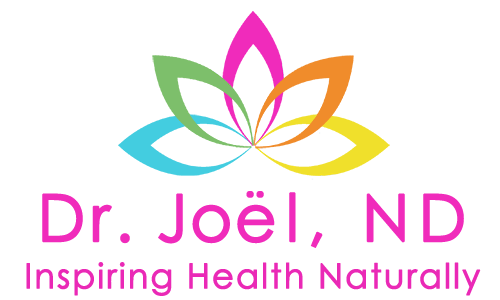ATHLETIC NUTRITION
/POWER FOODS 101 NUTRITION TIPS
By Dr. Joël, N.D.
To request an Athletic Nutrition Seminar click here
Whether you are an Olympic athlete or a weekend warrior getting ready to Bust A Move, your body deserves the very best fuel that can help you perform at your peak and recover quickly after. Carbs, Proteins & Fats all provide your body with energy, with carbs being the greatest source of energy for athletes. Minerals are like turbo chargers for energy. Here are some tips to help any athlete Olympian or not which include foods bursting with Power Food 101 Nutrients!
Tip #1: PRE-POWER MEALS: CARB-LOADING
If you are exercising for more than an hour at a high intensity on your event day, to give your body maximum energy fuel up with Power Carbs. Carbs provide the athlete with the quickest source of fuel. When you eat carbs (or excess protein) they are metabolized into glucose and then stored in your muscles as a reserve of fuel known as glycogen. The longer the workout the greater the amount carbs needed.
When your body runs out of glycogen stores for energy which is also known as “Hitting the Wall”, it will switch to its reserve “Fat Burning” mode which is great if you wish to lose weight and for brain function, but is not as good for performance during an athletic event. Ideally focus on ¾ of your plate to be carb-rich. Focus on gluten-free whole grains like brown rice, quinoa or oats and veggies for your best power carbs. Enjoy carb-loading meals the day before you Bust A Move! Great Pre-Power Day Meals Include
- Beef Stir Fry with Lots of Brown Rice
- Chicken Burrito with Brown Rice, Corn Salsa and Black Beans
- Spaghetti (brown rice pasta that is gluten free – as it is more easily digestible)
- Power Foods 101 Pizza!!!
Tip # 2 PROTEIN POWER
The average athlete needs the size and diameter of their palm as a serving size per meal (or weight in lbs. /2.2 X 1.2-1.4+ grams of protein per day) with an extra serving within one hour after a training session. For a 150-pound person that is about 88 grams a day. Be sure and check with your health team if edging on the higher end of protein consumption for extended periods of time to ensure that is the right amount for you and that your body is digesting it well. High quality sources of protein include lean meats, fish, poultry, nuts, beans, eggs and non-dairy milk (dairy products if you are not intolerant to them). Ideally use organic, grass-fed red meat, wild fish and free range poultry or eggs where possible. Protein doesn’t provide a lot of fuel for energy. But you need it to maintain your muscles.
Tip # 3 FAT POWER
Most athletes get all the fat they need by following basic the dietary guidelines to enjoy healthy fats at throughout the day such as avocados, nuts, seeds, olives, extra virgin coconut oil, and fatty fish like salmon and tuna. For endurance events, your body turns to fat for a backup source of energy when carb sources run low. For optimal hormone balance include a serving of fat with your pre-workout snack and not your post-workout snack.
Dr. Joël, ND's Pre-Workout Smoothie (nourishes your adrenal glands and increases epinephrine to mobilize your stored energy to power your workout)
Tip #4: HYDRATION & ELECTROLYTES
Pre-workout hydration is equally important as pre-workout nutrition. Even a small amount of dehydration can affect your exercise performance, lead to fatigue, and potentially a loss of coordination. According to the American Council on exercise, exercise performance can decline up to 25% if a person’s hydration level decreases by just 2% during a workout.
For adults, consume 5-6 (8 oz.) glasses of water a day as your baseline and for every Carb-Loading meal add an extra 8 oz. of water to your day. To add extra power to your day add a splash of electrolytes to your hydration plan. Electrolytes are vitamins and minerals found in your body and are important to help transmit nerve signals and for prolonging your energy. Simply add ½ tsp. of natural sea salt to your water or switch up your water for unsweetened coconut water.
As your body weight, activity level and environmental conditions will change your hydration needs, a great way to see if you are on track for hydration is to drink enough water throughout the day until your urine is almost clear.
POWER FOODS 101 ATHLETIC FUEL DAY!
Congratulations! You’ve been training up a storm fundraising and dusting off your Bust A Move fitness gear! Here are some nutrition tips of what to eat the day of the event to keep you Powered Up for the day!
Upon Rising: Hydrate with an electrolyte- rich beverage like coconut water
Breakfast: Enjoy a Carb-Loading Breakfast with protein and healthy fat to increase glycogen loading and give you energy reserves such as:
- Steel Cut Oats with Berries, Nuts & Seeds and a non-dairy milk
- The Mexican! Whole Grain Toast with Eggs, Tomato & Avocado
- Maple Oat Granola-recipe in Power Foods 101
Snax: This is your chance to give the body fast fuel during your event. Many athletes use protein bars and or energy-gels which are often made with refined sugar. The fastest healthy source of food that passes quickly into the blood stream, to energize working muscles are fruits or cold pressed juices. Here are a few options of Power Hour Snacks sweetened with natural sweeteners if used and listed in the order from top down to the slowest to fastest source of fuel. In general the lower the fiber content of a food the less chewy it is and the faster it will be released as energy.
- Hummus with Veggies
- Energy Bombs!
- Homemade Power Bars (Larabars)
- Fruit or Cold Pressed Juices
Hydration: Continue to hydrate!!! Remember to avoid waiting until you are thirsty which means that you are already dehydrated and may significantly affect your performance.
Post-Exercise Recovery: Your body just performed at a peak for you, so take the time to nourish it with foods rich in vitamins and minerals that will help you do even more amazing things! After exercise and especially after an event, your body is working hard to re-hydrate, to store carbs for tomorrow’s activity, to repair and build fatigued muscles and to reduce inflammation to promote recovery.
1 Hour After: I recommend an extra serving of 20-30 grams of protein within 1 hour after your workout to repair muscle and dramatically improve your rate of recovery. Signs of poor recovery include fatigue, prolonged muscle soreness, lack of stamina in subsequent workouts, and lack of increased muscle mass. Enjoy your post-exercise snack with NO fat (i.e. nuts, seeds, fish oils or coconut oils) to promote optimal restoration of your glycogen stores and hormonal balance. Include healthy fats at any other time of the day. A great option is Dr. Joël, ND's Pre-Workout Smoothie which gives you post-workout nutrition along with helping you rehydrate.
1-2 Hours After: To ensure a quick recovery hydrate during the first 2 hours post-exercise2. Reload on your normal balanced nutrition with equal proportions of your macros (protein, carbs & fat) and all of the colours of the rainbow.
Balanced Recovery Meals Include:
- Baked Salmon with Veggies and Quinoa
- Vegetarian Chili and a Salad
- Chicken Curry with Veggies















